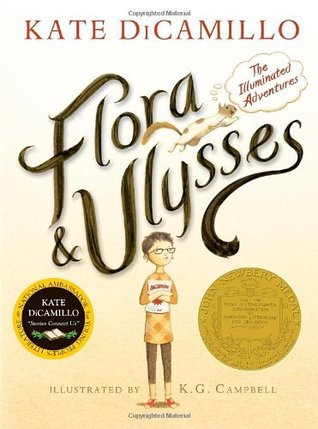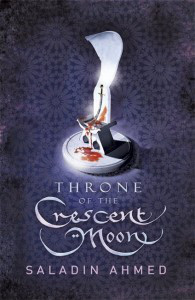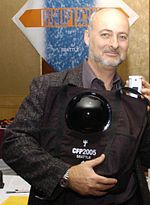Written by Kate DiCamillo, illustrated by K.G. Campbell.
2014 Newbery Medal Winner

Overall rating: 3/5 – I really wanted to go lower, truth be told, but the parts of this book that I found to be redeeming were ESPECIALLY redeeming, so I feel okay about a solid three outta five.
Plot Summary (as taken from the book’s Amazon listing): It begins, as the best superhero stories do, with a tragic accident that has unexpected consequences. The squirrel never saw the vacuum cleaner coming, but self-described cynic Flora Belle Buckman, who has read every issue of the comic book Terrible Things Can Happen to You!, is the just the right person to step in and save him. What neither can predict is that Ulysses (the squirrel) has been born anew, with powers of strength, flight, and misspelled poetry—and that Flora will be changed too, as she discovers the possibility of hope and the promise of a capacious heart.
From #1 New York Times best-selling author Kate DiCamillo comes a laugh-out-loud story filled with eccentric, endearing characters and featuring an exciting new format—a novel interspersed with comic-style graphic sequences and full-page illustrations, all rendered in black-and-white by up-and-coming artist K. G. Campbell.
Story: 2/5
I’m trying to develop a kind way of saying something along the lines of, “This story goes nowhere.” Truly, it doesn’t. The plot is a very weak attempt at discussing the concept of divorce as seen through the eyes of a child, but even then I feel like a lot of the potential for this story to become a really heartfelt ode to family instead evolved very quickly into a shoved-down-your-throat “2 quirky 4 u” tale of a little girl and her pet squirrel. Okay. Whatever, Kate DiCamillo.
What is absolutely shocking to me is that I’m familiar with some of DiCamillo’s other stories. The Tiger Rising and Because of Winn-Dixie, for example, are both really beautiful and tender stories featuring children dealing with very adult problems in a way that is both (semi) believable, and interesting. Flora & Ulysses, however, falls flat in that sort of subtle potency that her previous titles have shown she is able to produce.
In Flora & Ulysses, a young girl (Flora) is shown to be living with her mother relatively soon after her parents have split-up. Flora meets the co-star of the story, Ulysses – a common ground squirrel, after rescuing him from a near fatal vacuum cleaner incident. Ulysses demonstrates that the accident has given him super-powers such as super strength, flight, and for some reason he is also now able to understand English and write his own original poetry on Flora’s mother’s typewriter?????
While I found a lot of the cutesy details in this story to be eye-roll worthy at best, I will say that there is a specific poem that Ulysses writes that I found incredibly endearing. Featured in the epilogue, it reads;
“Nothing
would be
easier without
you,
because you
are
everything,
all of it –
sprinkles, quarks, giant donuts, eggs sunny-side up,
you
are the ever-expanding
universe
to me.” (DiCamillo, 233)
I won’t spoil the story too much, but the nonsense words of the poem are references to happenings in the book, making it that much more I Wanna Barf in My Mouth precious.
The story does branch off into a few smaller tales, as do most books, but this one ties up essentially no loose-ends. We’re introduced to a motley crew of misfit-toy type characters, and then left wondering what the heck is happening/has happened to them at the end. I definitely feel like abandoning the unnecessary story lines in favor of strengthening the important one (Flora’s relationship with herself and her parents post-divorce) may have given the story the extra *something* it was missing.
Characters: 1.5/5
Seriously, seriously, seriously crap. I won’t go into much detail here because I’ll find myself rambling off reasons why their so bad until my fingers bleed from typing and it’s all coming out as nonsense.
Flora, the main character, is a perfect example of how there are so many failed Young Adult/Children’s novels because adults more often than not cannot write children characters. Throughout the novel, Flora calls herself a “cynic”. It becomes a trope through the entire book that Flora is a cynic. Flora can’t have friends because she’s a cynic. Flora can’t stop being snotty to her mother because she’s a cynic. Flora can’t be a helpful person to her neighbors and teachers because she’s a cynic. It just goes on. Not only does it get incredibly boring, but also what nine year old on the planet does that? I don’t know any, and I work with elementary school kiddos every day at my job.
Flora’s parents are caricatures of themselves. Her mother is a novelist who only writes romance, chain smokes, and insists on using an old-school typewriter to do her work rather than a computer. Her father is a balding accountant who wears suits even on his day off and utters the phrase, “I’m George Buckman, how do you do?” enough times that it just sounds like he’s the victim of a terrible stroke.
The neighbor-boy and obligatory potential love interest is William Spiver. That is his first and last name that he insists he go by all the time. He is ten years old and claims to be stricken blind by trauma. His turn of phrase is nothing short of obnoxious and is, in my opinion, not at all relatable.
The Positives:
– Really super cute poetry written throughout.
– Unique illustrations. Occasionally entire chapters will be illustrated and laid out like a graphic novel.
– Short, easy to read chapters.
– A few really solid quotes that stuck with me after I finished reading.
The Negatives:
– Characters with as much depth as a shower. Main character was a junior Manic Pixie Dream Girl type. Gag me.
– Abrupt ending that felt rushed and incomplete.
– Lacked a sort of emotional weight that I have come to expect from DiCamillo.
If you enjoy movies like 500 Days of Summer or Garden State where really annoying female leads help out a boring dude to find himself, you might like this book. If you like a quick nonsense read that is essentially brain candy with no substance, you might like this book. If neither of those things are true, spare yourself.
Advertisements Share this:




